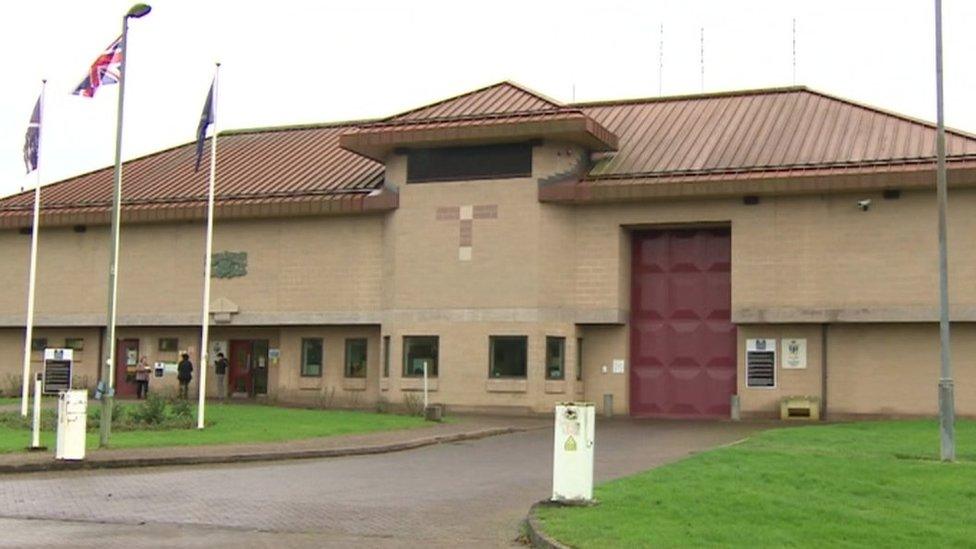Covid: Bullingdon prisoners in cells '23 hours a day'
- Published

HMP Bullingdon had an average of 1,057 inmates during lockdown
Inmates at an Oxfordshire prison spent up to 23 hours a day in their cells to maintain social distancing, a report has found.
The Independent Monitoring Board (IMB) said the coronavirus pandemic also meant prisoners at HMP Bullingdon were getting less education and exercise.
Vicki Talbot, IMB Bullingdon Chair, said prisoners and staff faced "very challenging circumstances".
A Prison Service spokesperson said the restrictions had helped save lives.
HMP Bullingdon had an average of 1,057 inmates during lockdown.
Only a very small number of staff and no prisoners had tested positive for coronavirus, the board said.
The prison was at the centre of a coronavirus scare in February when a prisoner extradited from Thailand exhibited symptoms, but he later tested negative.
'Difficult times'
The IMB report, external said prisoners were treated fairly at the prison but overcrowding was an issue.
It also questioned whether the doubling-up of prisoners in cells designed for one occupant was "humane".
However, it commended the prison for an "effective system for keeping new arrivals in a period of quarantine" and for continuing "essential operations throughout these difficult times".
It also said levels of violence and self-harm had dropped significantly at the prison near Bicester since lockdown, which it considered a "success".
Ms Talbot said measures such as extra credits for phone calls in prisoners' cells were "praiseworthy".
But she said staff levels "must be maintained at adequate levels for the future and training enhanced".
In a statement the Prison Service said: "Restrictions on daily life helped save lives and protect the NHS and have been eased since this inspection in line with the latest public health advice."
- Published20 March 2020

- Published15 October 2019

- Published7 May 2019
